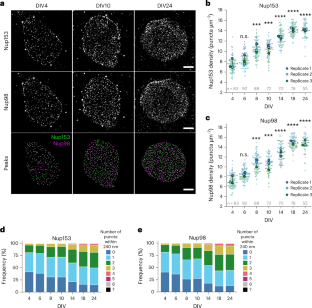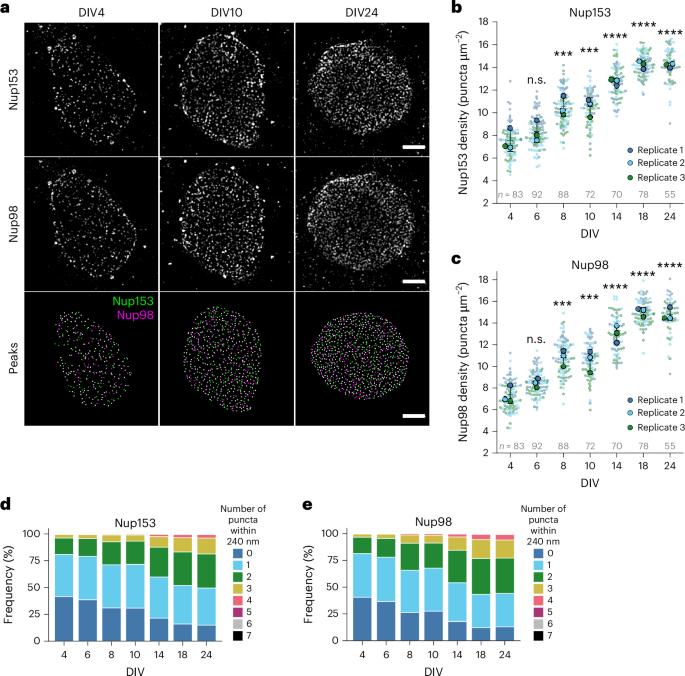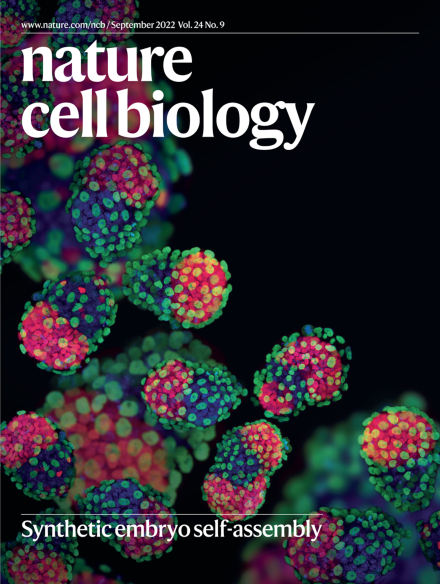TorsinA is essential for neuronal nuclear pore complex localization and maturation
IF 17.3
1区 生物学
Q1 CELL BIOLOGY
引用次数: 0
Abstract
As lifelong interphase cells, neurons face an array of unique challenges. A key challenge is regulating nuclear pore complex (NPC) biogenesis and localization, the mechanisms of which are largely unknown. Here we identify neuronal maturation as a period of strongly upregulated NPC biogenesis. We demonstrate that the AAA+ protein torsinA, whose dysfunction causes the neurodevelopmental movement disorder DYT-TOR1A dystonia and co-ordinates NPC spatial organization without impacting total NPC density. We generated an endogenous Nup107-HaloTag mouse line to directly visualize NPC organization in developing neurons and find that torsinA is essential for proper NPC localization. In the absence of torsinA, the inner nuclear membrane buds excessively at sites of mislocalized nascent NPCs, and the formation of complete NPCs is delayed. Our work demonstrates that NPC spatial organization and number are independently determined and identifies NPC biogenesis as a process vulnerable to neurodevelopmental disease insults. Kim et al. show that nuclear pore complex (NPC) formation is strongly upregulated during a specific neurodevelopmental window. In neurons, torsinA is required for the maturation and normal localization of nascent NPCs, but not their density.


TorsinA 对神经元核孔复合体的定位和成熟至关重要
作为终生的间期细胞,神经元面临着一系列独特的挑战。其中一个关键挑战是调控核孔复合体(NPC)的生物生成和定位,其机制在很大程度上还不清楚。在这里,我们发现神经元的成熟期是 NPC 生物发生强烈上调的时期。我们证明,AAA+蛋白torsinA的功能障碍会导致神经发育运动障碍DYT-TOR1A肌张力障碍,并在不影响NPC总密度的情况下协调NPC的空间组织。我们生成了内源性 Nup107-HaloTag 小鼠品系,以直接观察发育中神经元中的 NPC 组织,结果发现 torsinA 对 NPC 的正确定位至关重要。在缺乏 torsinA 的情况下,核内膜会在新生 NPC 错误定位的位置过度萌发,完整 NPC 的形成也会延迟。我们的研究表明,NPC的空间组织和数量是独立决定的,并确定了NPC的生物发生是一个易受神经发育疾病损伤的过程。
本文章由计算机程序翻译,如有差异,请以英文原文为准。
求助全文
约1分钟内获得全文
求助全文
来源期刊

Nature Cell Biology
生物-细胞生物学
CiteScore
28.40
自引率
0.90%
发文量
219
审稿时长
3 months
期刊介绍:
Nature Cell Biology, a prestigious journal, upholds a commitment to publishing papers of the highest quality across all areas of cell biology, with a particular focus on elucidating mechanisms underlying fundamental cell biological processes. The journal's broad scope encompasses various areas of interest, including but not limited to:
-Autophagy
-Cancer biology
-Cell adhesion and migration
-Cell cycle and growth
-Cell death
-Chromatin and epigenetics
-Cytoskeletal dynamics
-Developmental biology
-DNA replication and repair
-Mechanisms of human disease
-Mechanobiology
-Membrane traffic and dynamics
-Metabolism
-Nuclear organization and dynamics
-Organelle biology
-Proteolysis and quality control
-RNA biology
-Signal transduction
-Stem cell biology
 求助内容:
求助内容: 应助结果提醒方式:
应助结果提醒方式:


